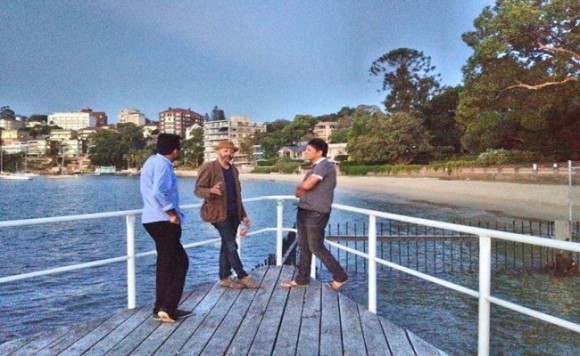This is the people’s century. We must speak out. We have more ability as individuals to create change if we unite. Now more than ever ordinary people can influence political outcomes through their buying power and through social media and this makes us incredibly excited.
“The sole aim of journalism,’ according to Mahatma Gandhi, ‘should be service.” Yet, though many of us care about freedom, diversity and fairness for all, why are the folks from Australia, Ukraine, through to Venezuela out on the streets? What evidence is there of inequality increasing? Who pays taxes and who avoids them; and how do we create a fair system? What drives technology, innovation and advancement? Why does language and culture matter in an age of profits and fat cats?
The Stand is run by an all-volunteer team that is hell bent on ending racism. We have poured our hearts and souls into getting a conversation going on an issue that many refused to talk about. Most were happy to say it didn’t exist. Some went so far as to suggest that we were making this up to get attention. Nonetheless, we have come together cutting across politics, class, race, language, gender and philosophies, to get a better approximation of the truth.
These days we can affect change. As responsible citizens it is our duty to speak up and try to create the world we want to live in. The fact that eighty people hold half of the wealth of the world in their hands is unacceptable and is having disastrous consequences. Popular media in the modern world has become synonymous with big business. This was seen plainly in the Murdoch empires reluctance to report on the recent Boycott of the Sydney Biennale of art by artists protesting Transfield Holdings’ involvement in both Arts sponsorship and profit making through the running of detention centres for individuals requesting Australian political asylum.
The controversy in Australia surrounding media magnate Rupert Murdoch accuses him of ‘allegedly’ using his newspaper interests, (News Corp owns 70% of Australian Newspapers), to influence public opinion and federal elections. In the process, of making The Stand we have learnt that we can no longer rely on mainstream press, media moguls, and politicians to keep us informed about current events of consequence. Accordingly, we have developed an interest in individual and personal narratives that have long been excluded from mainstream, commercial media.
Take for instance, the young Afghan man whom we met near the cinema on King Street in Sydney. He was on his phone checking his campaign, noting the numbers he had to help his favoured electoral candidate for the up-coming elections in Afghanistan. He was doing this by using social media and a clever marketing strategy that was cheap and easy to use.
He informed us that out of the thirty million or so people in Afghanistan at present only one million would have access to the internet but that it was this million he was targeting. He said it was a matter of urgency and that this could be the change that his country needs to stop the bloodshed.
As is his democratic right the young and optimistic Afghan man is supporting Ashraf Ghani Ahmadzai; an academic and politician who is currently running in the 2014 Presidential election. Yet most of the press, along with many Australians, pay very little attention to Afghanistan’s politics. Ironic, given that Afghanistan is a place where we have had our longest running conflict.
Online campaigners like this man we met hope to: “ensure the entry of an internationally appealing, domestically supported, and technically able individual into the Arg, the presidential palace in Kabul, to end the current warfare, remedy the ongoing crippling ethnic politics, ensure a progressive future, and achieve peace with justice.”
While the rest of the world has simply watched as a million Afghans were killed in that country over the past thirty five years, online campaigners, such as this man, who we met by chance, are trying to make a difference. By bypassing the traditional media channels and their politics, social-media campaigners aim to get directly to the people. This is people-power in action. From overthrowing governments, to stopping racist shock-jocks, the world -wide-web democratically demonstrates the legitimate ‘power of the people’.
Technology and social media activism are now the most vital and powerful tools for political organisation, communication and resistance. Similarly, as the number of Syrian refugees tops two and half million, many countries have decided that an appropriate response to this crisis is to simply turn their backs on those fleeing the escalating violence; Australia is no exception.
Amnesty International understands the value of the online platform thoroughly. It has launched an online campaign to successfully highlight the Syrian issue, amongst other things. In October 2013, our government offered just 500 resettlement places to Syrian refugees – a shockingly small 0.02% of the total number in need. While this is extremely sad and depressing, there is a gradual change taking place that gives us a taste for optimism.
Independent movements such as The Stand, Social Justice Solutions, All Together Now, Project 18C, Asylum Seeker Resource Centre and many others, are alike in that they all use strategic online campaigns to build and promote their progressive more humane world. This new ‘news’ environment is bringing participation back into our democracies; a grassroots journalism revolution is taking place all over our earth, via Facebook, blogging and other virtual events. This makes us extremely optimistic about our future.
Writers, as internet enabled individuals, are bridging that traditional gap between the ‘us’ and ‘them’ of events, which is still being perpetrated by the franchised media moguls. We now write our lives personally, as part of this new-news phenomena. Through technology we are able to bring to the public our various perspectives, our particular humanness, and reflect actively upon disparate and global issues of contemporary importance, be they social, economic or political.
By the strategic combination of thought provoking images, articulate slogans and access to the internet, these smart campaigns such as the one coordinated by Amnesty International, and now waged by The Stand, are empowering people by keeping them better informed.
We have new ways of thinking about our place in the world.
Now more than ever, those with the need to change things for the better must speak out, because you will be heard.

Christopher Raja is an award winning author, Co-Founder of The Stand and The New Parliament. He also co-authored ‘The First Garden’.

